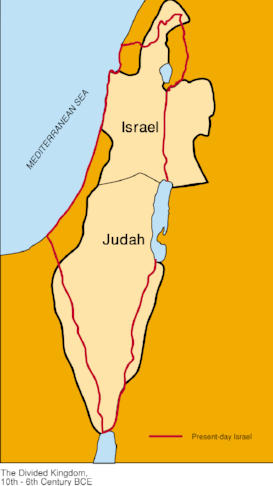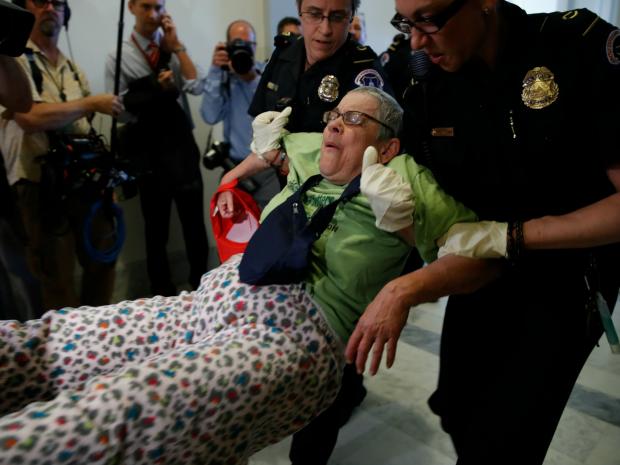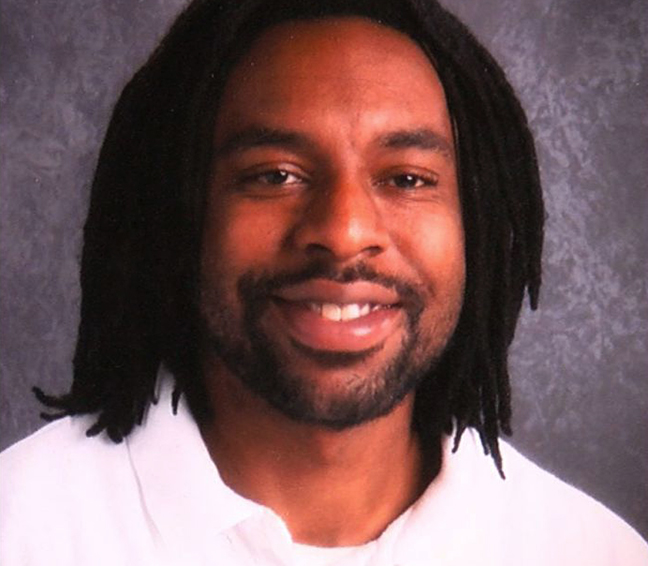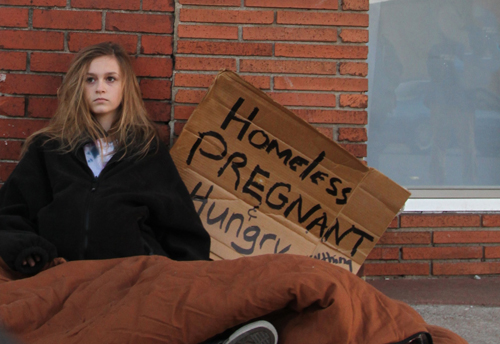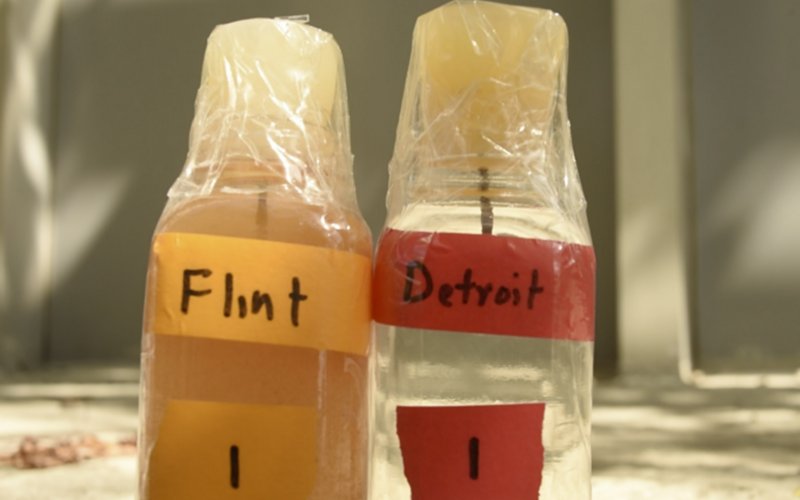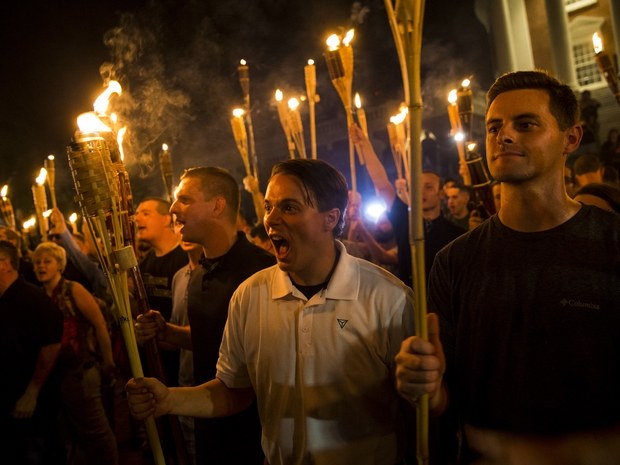Note: In addition to the title Card, we currently have four other Canon Cards taken from the Book of Amos (more on those later). In some respects, we would like to present this Card Talk as an outline for the Book of Amos. However, that would be a fool’s errand. Minds far greater than ours have buckled under the weight of this short book.
Instead, we present some historical and textual context to provide greater insight into the Canon Cards taken from this book, as well as how Amos' message of social justice still (sadly) applies in the present.
I. Background on Amos
Amos the man
Little is known about the prophet Amos. He was a man of wealth and influence, making his money in both livestock and horticulture.
He could have remained in a place of privilege, not concerned with the plight of the less fortunate. He could have only worried about his own people, making sure his employees earned a living wage and were treated with dignity and respect, honoring the laws of God and man. But when he heard the call of the LORD, he took up the mantle of a prophet and expanded his voice and actions. Amos traveled from his home in Tekoa, in the southern kingdom of Judah, to the northern kingdom of Israel, possibly conducting the majority of his ministry in and near the cities of Bethel and Samaria.
Amos was an early prophet of this time period. Though he operated around the same time as Hosea and Isaiah, there is no record of them crossing paths, but like them and the prophets who would follow, Amos’ primary message focused on those who oppressed the most vulnerable people among them.
Historical Note
Quick biblical history lesson:
After the David turned his kingdom over to Solomon, and Solomon drove it into the ground, the United Monarchy ended. The kingdom split in two: Israel in the north, and Judah in the south.
Though cut from the same ancestral cloth, like many families, the two sisters/brothers/cousins (choose the relationship that works for you) didn’t always get along.
They fought over where people should worship God, which Torah stories they should tell their children, and who Daddy loves best. As much of the Hebrew Bible is written from a Judah perspective, Israel is made out to look like the family screw up.
With this backdrop The Book of Amos begins with a limited description of Amos “in the days of King Uzziah of Judah and in the days of King Jeroboam son of Joash of Israel.” (1:1)
Structural Notes
The Book of Amos records plagues that befell the kingdom of Israel. Each one of these plagues was connected to a vision Amos received from on high. Amos turned each vision into an oracle for the people. The Book of Amos is largely a complicated arrangement of these plagues, visions, and oracles.
The first pairing of visions and oracles called the people to repentance. The second pairing warned the people of their impending doom for not heeding the call to turn their hearts and hands back to their God. Thus, Amos’ ministry can be broken into two phases: calling the people to repentance and telling the people that they are screwed.
Amos, like other prophetic books, are not presented in anything remotely resembling chronological order, and it is the opening chapters of Amos that record the final oracles of impending screwedness (some scholars refer to 1:1-4:13 as “the book of doom”). A very, very, very rough chronology of the book's events would look like this:
Phase One: Amos’ early ministry = "Repent before it's too late!"
Plagues (4:6-13)
Vision 1 (7:1-3)
Oracle 1 (Chap 5)
Vision 2 (7:4-6)
Oracle 2 (Chap 6)
Phase 2: Amos’ ending ministry = "Too late: you're screwed!"
Vision 3 (7:7-9)
Oracle 3 (3:1-4:3)
Vision 4 (8:1-3)
Oracle 4 (Chap 1-2)
Confrontation with religious leaders at Bethel (7:10-17)
Vision 5 (8:4-9:6)
Epilogue (9:7-15)
II. The Message of Amos
Amos presents the Lord’s voice roaring from Zion/Jerusalem (1:2). His divine proclamations are not happy ones, and follow a common biblical formula:
3 // 3+1 = 4:
“For three transgressions of [fill in the blank with screwed nation] and for four, I will not revoke the punishment.”
In this formula is contained a court case in miniature. Or more to the point, the sentencing phase: God has judged each nation and found them guilty.
Following this formula there is a formal reading of the charges— the crimes these nations have committed against both their neighbors and God—, and then the sentence, the punishment, is announced. In each case “fire” is threatened to fall upon them: divine wrath, presumably in the form of conquest and destruction by another world power. At least that’s what the historical record upholds. It is important to note that the nations targeted are all Israel’s neighbors. They are the nations surrounding Israel on all sides, including her sometimes estranged sister Judah. All these places are arranged between the contemporaneous super-powers of Assyria to the north and Egypt to the south.
Why is this important?
The Book of Amos reasserts something sometimes lost in reading the Hebrew Bible/Old Testament: God has sovereign right to call out the evil behavior of all people, both OUTSIDE and INSIDE the household of the Jews.
OUTSIDE
Amos proceeds through the list of doomed neighboring nations—Syria, Philistia, Tyre, Edom, Ammon, and Moab— before turning his attention to Judah, and then Israel.
There is something to be seen in the progression: speaking doom to ones enemies and neighbors, before turning the focus of divine wrath on family and friends. Living in a glasshouse, throwing stones at others, before shattering one’s own panes.
The Book of Amos reminds that God is the God of all nations. Israel [Jews as a whole] may have a special relationship with God, but so does everyone else. Or, as the Anchor commentary on the book wonderfully captures the sentiment:
Every nation is elect; every nation has a special history created for it by the same God, Yahweh. It is an extraordinary feature of Amos' theology: election is universal. (p. 93)
Amos says God founded Israel and Judah (Amos 9:7), but He also founded Syria and Philistia (Amos 9:7). The Book of Genesis speaks of the relationship God has with Edom, Moab, and Ammon (c.f. Gen 36:1, 19:30-38). Tyre is the only one missing, but scholars assumed there is a lost tradition at work which includes Tyre as also being founded by God. But even in the absence of this tradition in the text, it is clear that Amos envisions all of humanity under the sovereign hand of God. All nations owe God their obedience, which is why they stand under His wrath for their mistreatment of others.
And so Amos threw stones at evil houses.
Amos was bold in his denouncement of the practices of these city-states, and through him God declared His opposition to acts of cruelty perpetrated against His creation, no matter their ethnic background.
Inhumane tortures inflicted upon the downtrodden (1:3); the displacement and disenfranchisement of whole communities (1:6) — even when this meant the breaking of treaties (1:9); the pursuit of defeated enemies past the point of political expediency or necessity, genocidal intent (1:11); ensuring future generations would not be born to oppose such practices (1:13); nor allowing cultural, political, or social remembrances of what came before (2:1).
[Damn: why do these sound so familiar? So current...]
Sadly these actions are not confined to Amos and the Ancient Near East, no matter how names and practices may have changed.
INSIDE
But since "good Christians" tend to only read themselves in the actions of the Jews in the Bible, let us turn to what Amos says against his own people. The self-recrimination is apparent, as seen in the other four Canon Cards we include in our game from Amos:
There crimes included things like The same girl used by father and son (Amos 2:7) for Altar sex (Amos 2:8). Crimes Amos proclaimed early in his ministry as he called for repentance. He told the people what God required: Justice rolling like a river, righteousness like an ever-flowing stream (Amos 5:24).
But they had a chance. And they squandered it. Because justice was not given, because the poor were destroyed, punishment rained down. Among them, Amos had visions of Famine (Amos 8:11).
The most shocking thing about this narrative is the source of the evil.
These were not outside forces exploiting labor and systematizing unfair practices within Israel. It was not a foreign government imposing its will on the Judean people. No one from the surrounding nations imposed physical, sexual, mental, economic, and emotional slavery on the people of the Covenant.
No. Theses were crimes committed against God's people, by God's people.
One of our Guest Card Talk writers discussed about Wide and Narrow Gates (Matthew 7:13-14) and the fates of those who choose wisely and unwisely in this life. She did not interpret this passage eschatologically as some do, imagining "the fire next time" as some read the writers of Genesis, the gospels, and Revelation seemed to.
But suppose it isn’t eschatological, that Hell fire is not the end for those who choose exploitation as a way of life.
What fire will fall in your life, our lives, if the acts of inhumanity to man continue to be perpetrated not just out there, but in here, within the community, within the household of faith?
Perhaps it is easier to throw stones at those around us, forgetting we live in glasshouses. Or worse, not caring that we do.
Perhaps we spend too much time worrying about what God will do to “them” for their actions, forgetting about our own.
Amos warned against such action. He was ignored and the people were punished. But his book still ends with words on the possibility of redemption (9:11-15).
Perhaps there is hope we can change.
But what do we know: we made this game and you probably think we're going to Hell.
![Trampling the Heads of the Poor into the Dust & Denying Justice to the Oppressed (Amos 2:7a) [A Card Talk on the Book of Amos]](https://images.squarespace-cdn.com/content/v1/55a9a1e3e4b069b20edab1b0/1498320217004-77V0OAC1GLUZKQALM1XL/blue_bra_01_custom-bd460798b934a1dc88306e282cd53086bc462d81-s800-c85.jpg)
